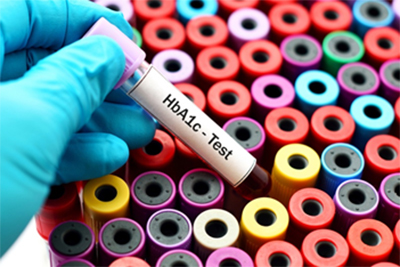
7. HbA1c Variability Identified to Be a Strong, |

![]() According to a study published by Dr. Emanuela Orsi from University of Milan, Italy, and his team in the journal Diabetes, Obesity and Metabolism, HbA1c variability has been identified as a strong, independent predictor of all‐cause mortality in T2DM and is hypothesised to be even more powerful than average HbA1c in predicting mortality.
According to a study published by Dr. Emanuela Orsi from University of Milan, Italy, and his team in the journal Diabetes, Obesity and Metabolism, HbA1c variability has been identified as a strong, independent predictor of all‐cause mortality in T2DM and is hypothesised to be even more powerful than average HbA1c in predicting mortality.
![]() The research team assessed 3 to 5 HbA1c measures of 8,290 T2DM individuals recorded during the two-year period (available from 9 centers) before their enrollment in the Renal Insufficiency And Cardiovascular Events Italian multicenter study. This data was used to calculate average HbA1c (HbA1c‐MEAN) and HbA1c variability, measured as the intra‐individual standard deviation (HbA1c‐SD), SD adjusted for the number of HbA1c assessments (HbA1c‐AdjSD) and coefficient of variation (HbA1c‐CV), i.e., the HbA1c‐SD to HbA1c‐MEAN ratio.
The research team assessed 3 to 5 HbA1c measures of 8,290 T2DM individuals recorded during the two-year period (available from 9 centers) before their enrollment in the Renal Insufficiency And Cardiovascular Events Italian multicenter study. This data was used to calculate average HbA1c (HbA1c‐MEAN) and HbA1c variability, measured as the intra‐individual standard deviation (HbA1c‐SD), SD adjusted for the number of HbA1c assessments (HbA1c‐AdjSD) and coefficient of variation (HbA1c‐CV), i.e., the HbA1c‐SD to HbA1c‐MEAN ratio.
![]() Analysis revealed that HbA1c variability increased according to the quartiles of average HbA1c, and vice versa. HbA1c‐MEAN and measures of HbA1c variability were found to be associated with all-cause mortality. Mortality increased with quartiles of HbA1c‐MEAN, HbA1c ‐SD, HbA1c‐CV and HbA1c‐AdjSD, but only the association with HbA1c variability measures remained after adjustment for confounders and/or each other measure. In fully adjusted models mortality risk was lower for HbA1c-SD below the median and higher for HbA1c-SD above the median, regardless of whether HbA1c‐MEAN was below or above the median.
Analysis revealed that HbA1c variability increased according to the quartiles of average HbA1c, and vice versa. HbA1c‐MEAN and measures of HbA1c variability were found to be associated with all-cause mortality. Mortality increased with quartiles of HbA1c‐MEAN, HbA1c ‐SD, HbA1c‐CV and HbA1c‐AdjSD, but only the association with HbA1c variability measures remained after adjustment for confounders and/or each other measure. In fully adjusted models mortality risk was lower for HbA1c-SD below the median and higher for HbA1c-SD above the median, regardless of whether HbA1c‐MEAN was below or above the median.
![]() “Further studies are required to understand whether HbA1c variability acts as a mediator or [an] innocent bystander in this relationship”, authors say.
“Further studies are required to understand whether HbA1c variability acts as a mediator or [an] innocent bystander in this relationship”, authors say.
For enquiries info@jothydev.net.
Please visit: jothydev.net | research.jothydev.com | diabscreenkerala.net | jothydev.com/newsletter
